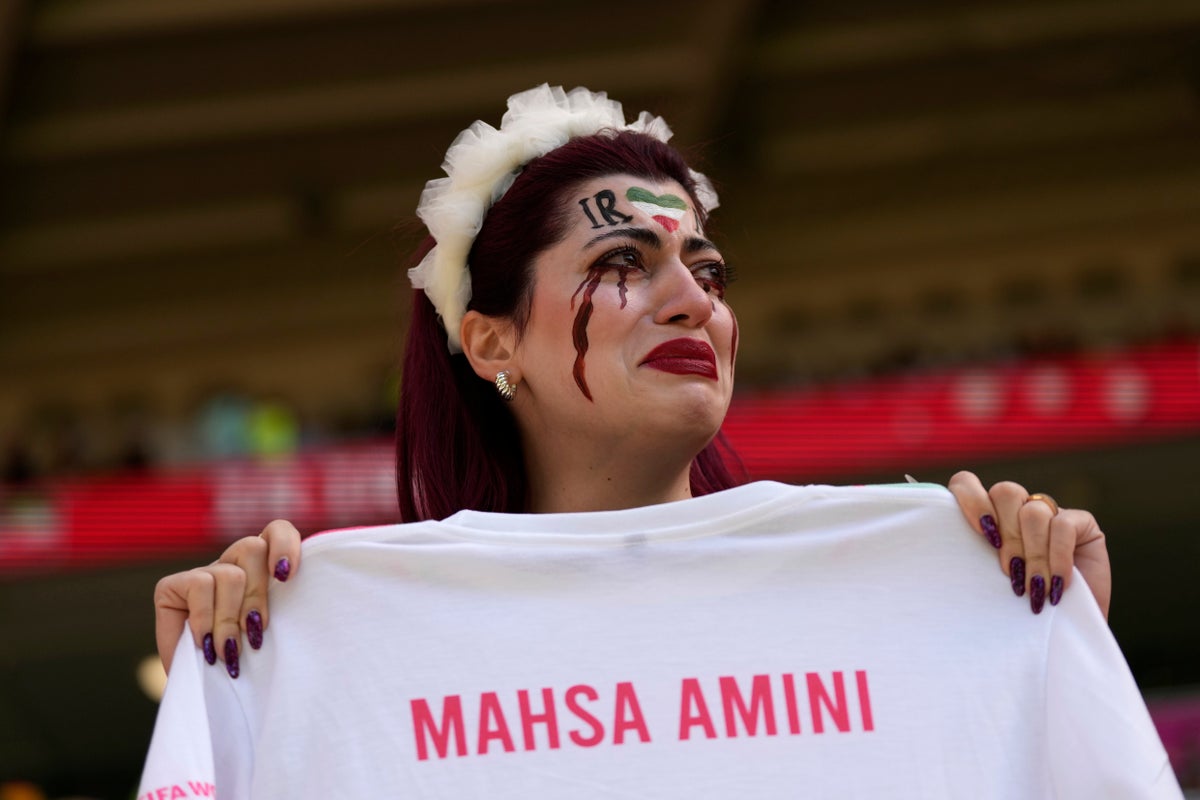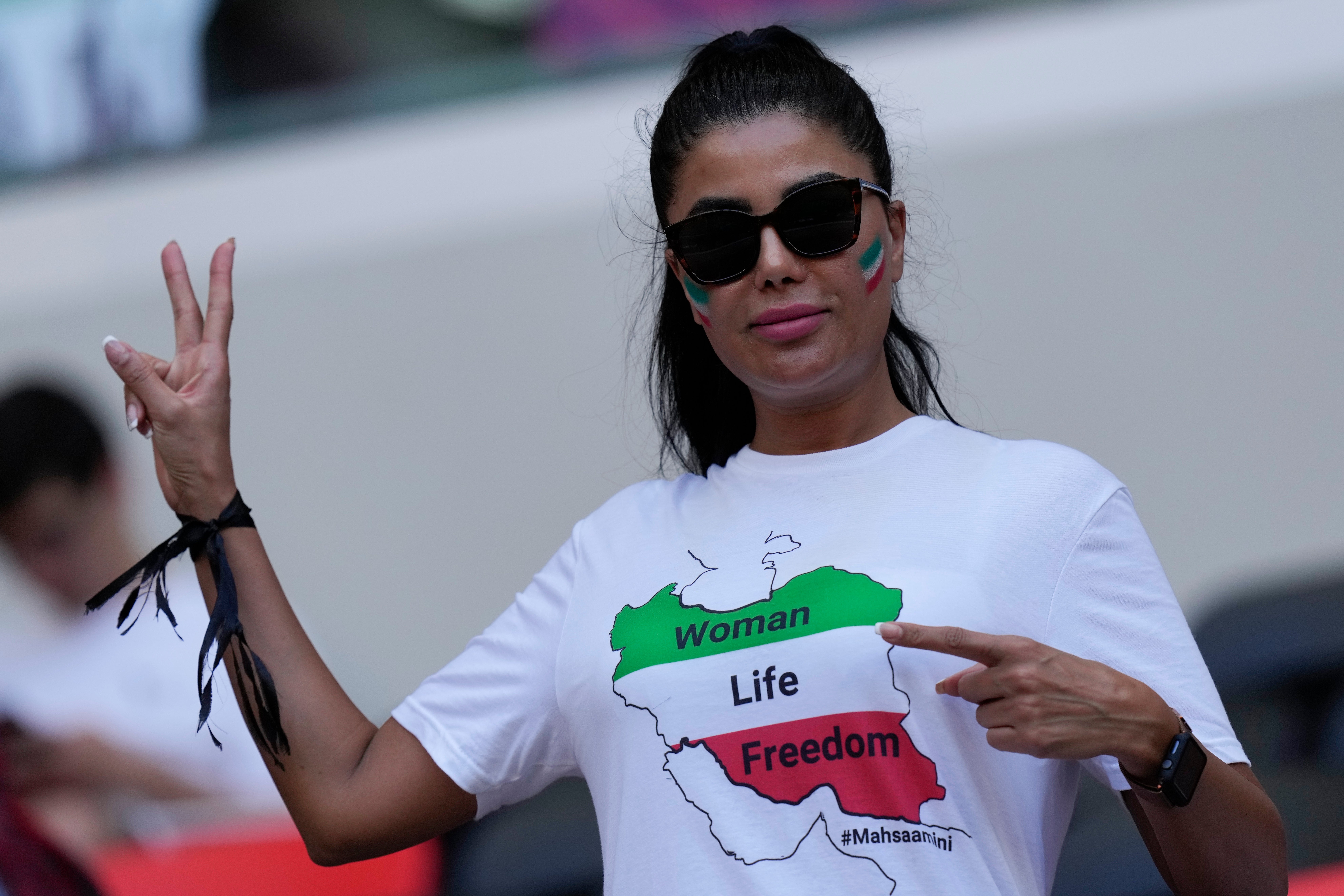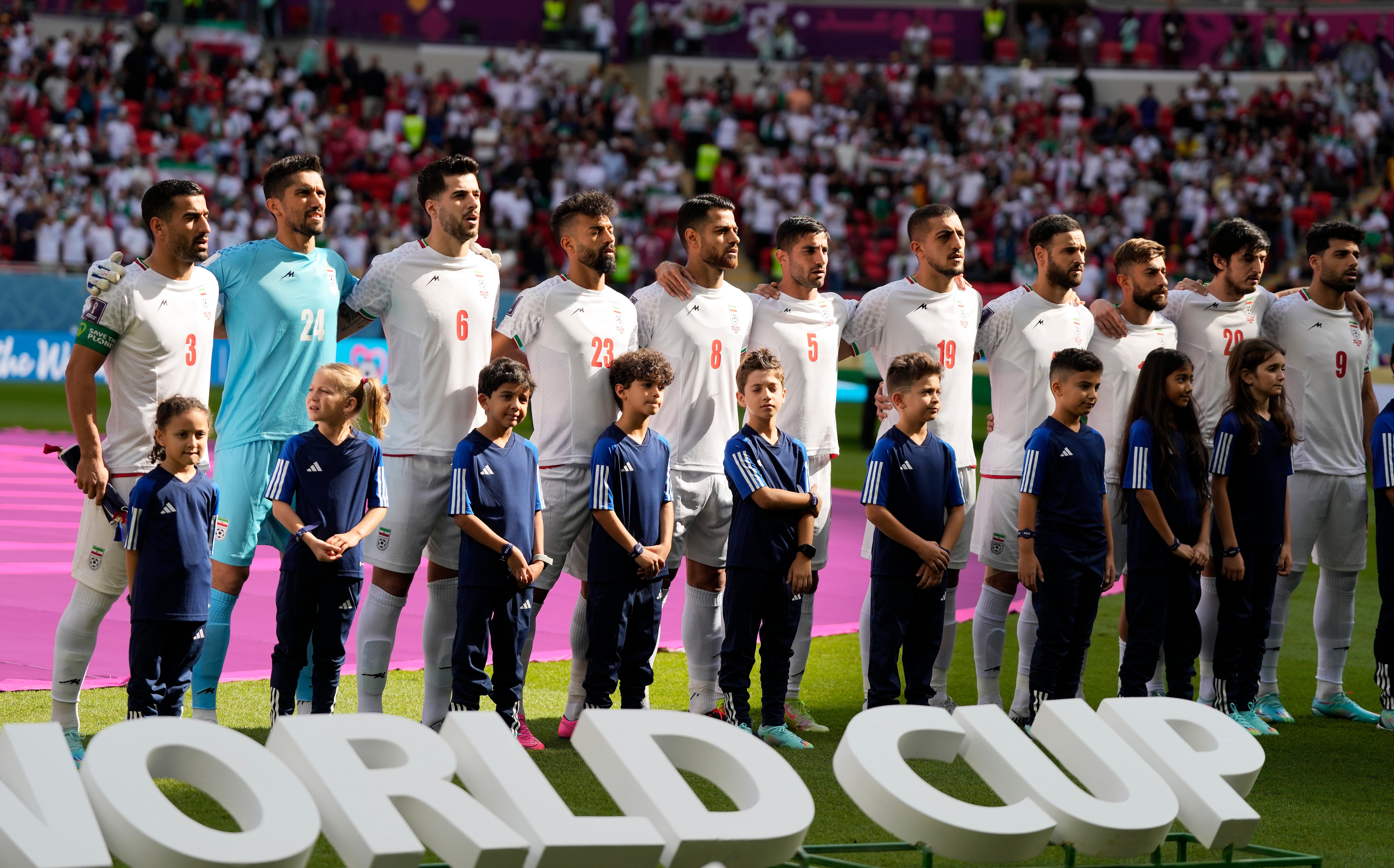
Qatar is denying allegations that it is collaborating with authorities in Tehran to keep a lid on protests during a World Cup tournament coinciding with an unprecedented nationwide protest movement in Iran.
A trove of leaked recordings and documents suggest Iran was coordinating with Qatar to suppress protests and was hoping to use excitement over the national team’s progress in the tournament to slow the momentum of a nationwide protest movement that has challenged Tehran’s clerical dictatorship.
The documents were hacked from the hardline Fars News Agency by the group Black Reward, which has posted some of the material to its Telegram page and shared others with opposition media outlets.
While the authenticity of the documents could not be independently verified, Fars confirmed that it had been hacked. Leaked documents include layouts of the Fars office and phone numbers of news agency officials.
If authentic, the documents could show a manipulation of Iranian football that blatantly violates Fifa rules demanding political neutrality in any member team’s dealings.
“If the evidence is conclusive and verified it represents a major breach in the mixing of politics and sport Fifa is trying to regulate,” said Alun Hardman, a professor of ethics and sport at Cardiff Metropolitan University. “The line between politics and sport has been massively blurred. It represents a new and serious development.”
Details from the hack come as Iran prepares to square off against the United States team on Tuesday for a possible spot in the final 16 stage for the first time in its football history.
The hacked files include audio of a Revolutionary Guard official speaking to employees of the notorious hardline news and propaganda platform and describing plans to instrumentalise the national football club’s players and their head coach Carlos Queiroz, a Portuguese citizen, to whip up nationalist sentiment and counter the 10-week protest movement triggered by death in custody of 22-year-old Mahsa Amini.
The leaked files allege possible collaboration between the regime’s security forces and Qatari authorities in identifying and excluding opponents of the Iranian regime attending the World Cup. In one audio file, the deputy head of the Revolutionary Guard’s Basij militia, Qasim Qureshi, can be heard telling the pro-regime journalists that Tehran and Qatar were working together to bar protesters and regime opponents from entering World Cup venues. Footage uploaded to the internet shows Qatari security officials preventing fans carrying pre-revolutionary flags of Iran from entering stadiums.
Mr Qureshi claims Qatar was to provide Iranian intelligence services with lists of Iranians from the diaspora attending the games. “Qatar has promised us not to let in the people who we name and say their presence is harmful,” he is heard saying. “If you provide documents that we can use as an excuse, [Qatar] will not let them in."
It remains unclear whether Qatar has ever provided any names to Iranians. A Qatari official, speaking on condition of anonymity, called the information in the recordings untrue.
“Qatari authorities have coordinated with authorities of all 32 countries on the safety and security of the national teams,” the official told The Independent. “There is no coordination between Qatari and Iranian security on entry restrictions to matches for World Cup ticket holders.”
The official said all security personnel in the stadiums report to Qatar, and there are no Iranian security officials working at the World Cup. He acknowledged that special security measures were in place to protect fans and players at Iran matches.
“For the safety of all attendees at the World Cup, the State of Qatar has ensured that enhanced security measures are in place during matches involving Iran’s football team,” the official said. “Before every match, a risk assessment is conducted, and security resources are deployed to each stadium accordingly.”
Professor Hardman called any sharing of information about fans between Qatar and Iran a major violation of data protection rules, effectively imperilling fans who have purchased tickets from Fifa.
“Iran and Qatar have potentially colluded to serve their own particular interests,” he said. “I can’t think of any situation where this has happened before, where the Qatar govt is in effect acting Iranian security proxies.”
The Qureshi audio and other documents also suggest the regime has gone all out in suppressing any potential displays of opposition by players of the national team. In the match against England, Iranian players refused to sing along with the national anthem of the Islamic Republic, prompting international attention on the protest movement . But in their next game against Wales, they sang along, amid suggestions and reports they had been intimidated. During the victory against Wales there were allegations that Qatari security forces were menacing pro-opposition Iranians. In one instance, a woman holding up a shirt with the name of Mahsa Amini had it confiscated.
The Qatari official said security personnel took extra steps to ensure calm at Iran matches. “As in all World Cup tournaments, items that could increase tensions and risk the safety of fans are not permitted,” the official said.
Following Iran’s match against Wales, “security teams were called in to break up a small number of altercations outside the stadium between Iranian fans,” the official said. “Officials will continue to ensure that every match at the Qatar World Cup is safe and welcoming for all spectators.”
In the audio files, Mr Qureishi repeatedly insults Iranian football legend Ali Daei, who has sided with the opposition and publicly refused an invitation to attend the World Cup, and suggests that pro-regime operatives trash him on social media. Mr Daei, who lives outside Iran, said in an Instagram post on Monday that he and his family had been repeatedly threatened.
Another star Iranian football player, the former international Voria Ghafouri, was arrested and held by the regime for several days because of his outspoken support for the protest movement. He was later released on bail, local media reported.

According to the hacked documents, a scheme devised by pro-regime think tanks and journalists called the “World Cup Operation Plan” involved threatening any player who supported the opposition with expulsion from the team. Proposals include using Mr Queiroz to keep players in line by warning them against granting interviews to international Persian-language news outlets or making any overt displays of protest, such as wearing black armbands to honour the hundreds of Iranian protesters killed by regime forces in weeks of protests.
Iran’s national team raised eyebrows when players met with hardline President Ebrahim Raisi, allegedly behind the murder of thousands of political prisoners in the late 1980s, just before departing for Qatar.
Another dimension of the plan for controlling the action at the World Cup included creation of a "media army” to boost the nationalistic sentiments of Iranians during the World Cup. Plans include victory celebrations in Iranian cities and lavish spending on propaganda posters and songs.
Social media users have identified numerous boisterous football fans appearing in national and international media as ranking regime figures who have traded their clerical garb or military uniforms for the colours of the national team. Among them were Ali Mahmoudzadeh, a ranking cleric close to the Revolutionary Guard, who appeared in a photo by the Fars News Agency riding a motorcycle with his wife and three children in the style of working-class Iranians.
Another woman in Qatar who spoke out in support of the team and smeared opponents of the regime as Israeli spies was identified as a senior employee of the Ministry of Culture and Islamic Guidance, which oversees the press.
Following Iran’s surprise 25 November win over Wales, the black-uniformed security forces used by the regime to crush protesters were filmed waving Iranian flags and cheering on the national team.
On Monday, Iran’s judiciary chief announced that some protesters arrested in recent weeks would be released in acts of clemency to celebrate the victory over Wales.
Fifa rules bind teams and sports associations to remain “politically neutral, in accordance with the principles and objectives of Fifa, the confederations, associations, leagues and clubs, and generally act in a manner compatible with their function and integrity”. Violations can incur fines of at least 10,000 Swiss francs and bans of up to two years.

Iran itself has complained about the politicisation of the World Cup. It demanded the expulsion of team USA from the tournament after it briefly removed the word “Allah” from the Iranian flag in online promotional material to show solidarity with protesters ahead of Tuesday’s match.
Despite the efforts to whip up public enthusiasm by the regime, support for team Iran among ordinarily football-mad Iranians has been tepid. Several campaigns depicting the national team as dupes of the clerical regime have caught on in social media.
Reaction to the victory over Wales, only its third-ever World Cup victory, was muted, especially compared to the reaction to its famous 1998 victory over the US. After that match, tens of thousands of Iranians poured into the streets to cheer on the national team.







